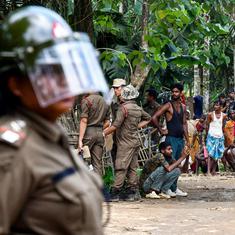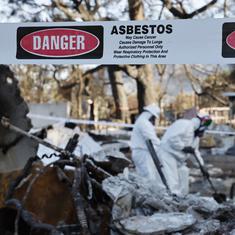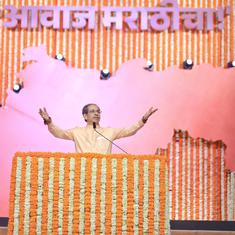Farm law protests: Can’t obstruct roads for commuters, SC tells farmer leaders
The petitioner said it takes her two hours to travel from Noida to Delhi because of the agitation.

The Supreme Court on Monday asked farmer leaders protesting against the three new agriculture laws to reflect on whether they should continue to obstruct roads for their agitation, the Hindustan Times reported. The court urged them to consider if they were interfering with the rights of residents to commute freely on public roads.
The court was hearing a petition filed by a woman, saying that it takes her almost two hours instead of the usual 20 minutes to travel from Noida to Delhi because of the farmers’ protest. Monicca Agarwaal in her plea said that the directions passed by the Supreme Court in several matters, including in case of the anti-Citizenship Amendment Act protest in Delhi’s Shaheen Bagh, have not been followed.
“Just because you are not in sync with a particular policy that does not mean that the others should suffer and you obstruct their way,” a bench of Justices Sanjay Kishan Kaul and Hemant Gupta told the farmers.
Solicitor General Tushar Mehta, appearing for the Union government and Delhi Police, sought adjournment of the case by two weeks as the focus of the administration has shifted from clearing the blockage to management of the coronavirus situation, the Hindustan Times reported.
“We will give you time,” Kaul said. “But we should also tell you what our concern is. People may have a right [to protest] but what concerns us is the tendency to block roads which impacts a large section of the society.”
The bench also pointed out that it was not a good idea to hold protests amid a “sudden spurt” of the coronavirus cases. The matter will now be heard on May 7.
On March 26, the Supreme Court had issued notices to the Centre and Delhi Police “to ensure that the road area is kept clear so that the passage from one place to the other is not affected”.
Farm laws
Thousands of farmers have camped outside Delhi since November, demanding that Prime Minister Narendra Modi repeal the three laws that open up the country’s agriculture markets to private companies. Farmers fear the policies will make them vulnerable to corporate exploitation and would dismantle the minimum support price regime.
The farmers have hunkered down with supplies that they say will last them for months, and have resolved to not leave until their demands are met. In January, the Supreme Court had suspended the implementation of the farm laws until further orders.
The movement poses one of the biggest challenges to Modi since he took power in 2014, as he faces criticism from all sides, including from some allies of the Bharatiya Janata Party. The Shiromani Akali Dal of Punjab quit the ruling National Democratic Alliance at the Centre in September itself.
Another sign of impact was the Congress’ spectacular performance in the Punjab urban body polls held in February.









